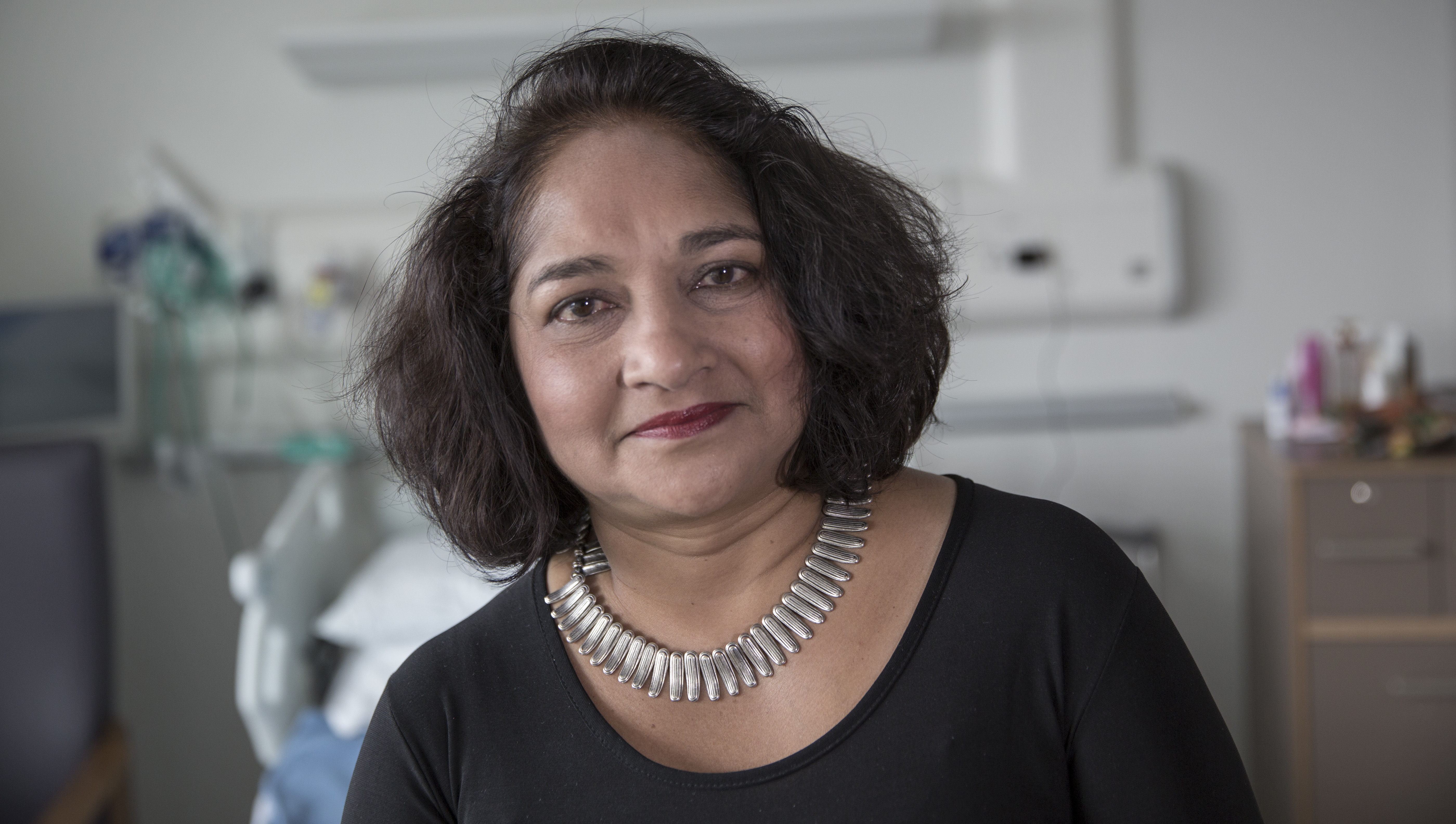
Tavistock Square, July 5 2015
Hasu Patel is more than a surgeon. In the hours and days, then months and years after the 7/7 bombings she saved lives, rebuilt bodies and soothed souls.
Warm and passionate as she talks about the bravery of the men and women who survived the bomb blasts a decade ago, Ms Patel is calm, clinical and composed in the operating theatre.
“It’s instinct - you can’t afford to get confused or to panic,” she says, remembering the morning of July 7, 2005, as the first of the injured arrived at the Royal London Hospital.
“If you panic you’re wasting your energy. You have to be very systematic. We as doctors have a system for examining patients - the ABC of emergency care. We are very much used to dealing with that every day. You don’t get flustered. You see patients in a measured way.”

Many of the most badly injured patients she helped on that day and for months afterwards are now her friends. Martine Wright, who lost both legs in the blast at Aldgate, went on to play volleyball in the 2012 Paralympics and invited Ms Patel to her wedding as a guest of honour.
Survivors who lost limbs send her pictures from their skiing holidays and every year they ask her to their anniversary dinner. Last July, when she was too ill to go out, Ms Patel’s former patients brought food to her London flat to keep up the tradition.
In her first media interview in the decade since the bombings, the surgeon says: “I want to talk about 7/7 now because I have great admiration for all of those people who, despite their really horrendous injuries, continued with their normal lives with great courage and dignity. This tenth anniversary to me means a celebration of the amazing way people overcame these horrific injuries.
“They have amazing amounts of courage and resilience - especially when people were just getting up that day, not expecting anything, and suddenly, in moments, their whole lives changed.”
On the morning of July 7 Ms Patel was in the hospital in Whitechapel preparing for her regular Thursday outpatients clinic. As news of an unexplained explosion on the Tube filtered out she cancelled her clinic and made her way down to A&E.
There was confusion, chaos, shouting. Communications were down, people were anxious to contact their loved ones and busloads of “walking wounded” were being dropped at the door. Initial reports were of a power surge and Ms Patel and her colleagues prepared to deal with major burns injuries. It was only around lunchtime that she heard that bombs had gone off.
Ms Patel says: “About 1pm I went to get some water in the coffee room, and I heard the news - it was the first time I realised what was possibly happening, that this was a terrorist incident. When I heard this I was very angry - the injuries I saw were so horrific, I just couldn’t believe they had been caused by a terrorist attack.
“But then I realised that you can’t afford to be thinking that way. My job as a doctor was to put all that energy into looking after patients. I think it was at that moment that I realised I was going to do my utmost for all my patients who were coming into my care now.
“A lot of them were going to require reconstructive surgery and I was going to look after them in such a manner that they would go away from my care in the same manner in which they went onto the Tube that morning - with all their hopes. This is how I directed my goals on that day.”
The moment also brought a realisation that would shape her career for the next decade - that she and her colleagues were not dealing with burns but with blast injuries of a kind few doctors outside the military have experience treating.
The powerful blast waves from the bombs had reverberated around the confined space in the Tube trains, pulverising flesh and bone and causing a very different type of injury. There was little chance of repairing flesh and a much greater need for amputations to save lives.
She explains: “I’d never seen blast injuries before … I realised very quickly that blast injuries meant tissues were beyond salvage, this resulted in many people having to have traumatic amputation, particularly of the lower limbs.”
Ms Patel never gave much thought to the four men who carried out the bombing and did not listen to the news or buy a newspaper for weeks afterwards.
She says: “To think about evil like that is counterproductive, a waste of time, when you are in a position where you have the responsibility to look after many people who need help.”
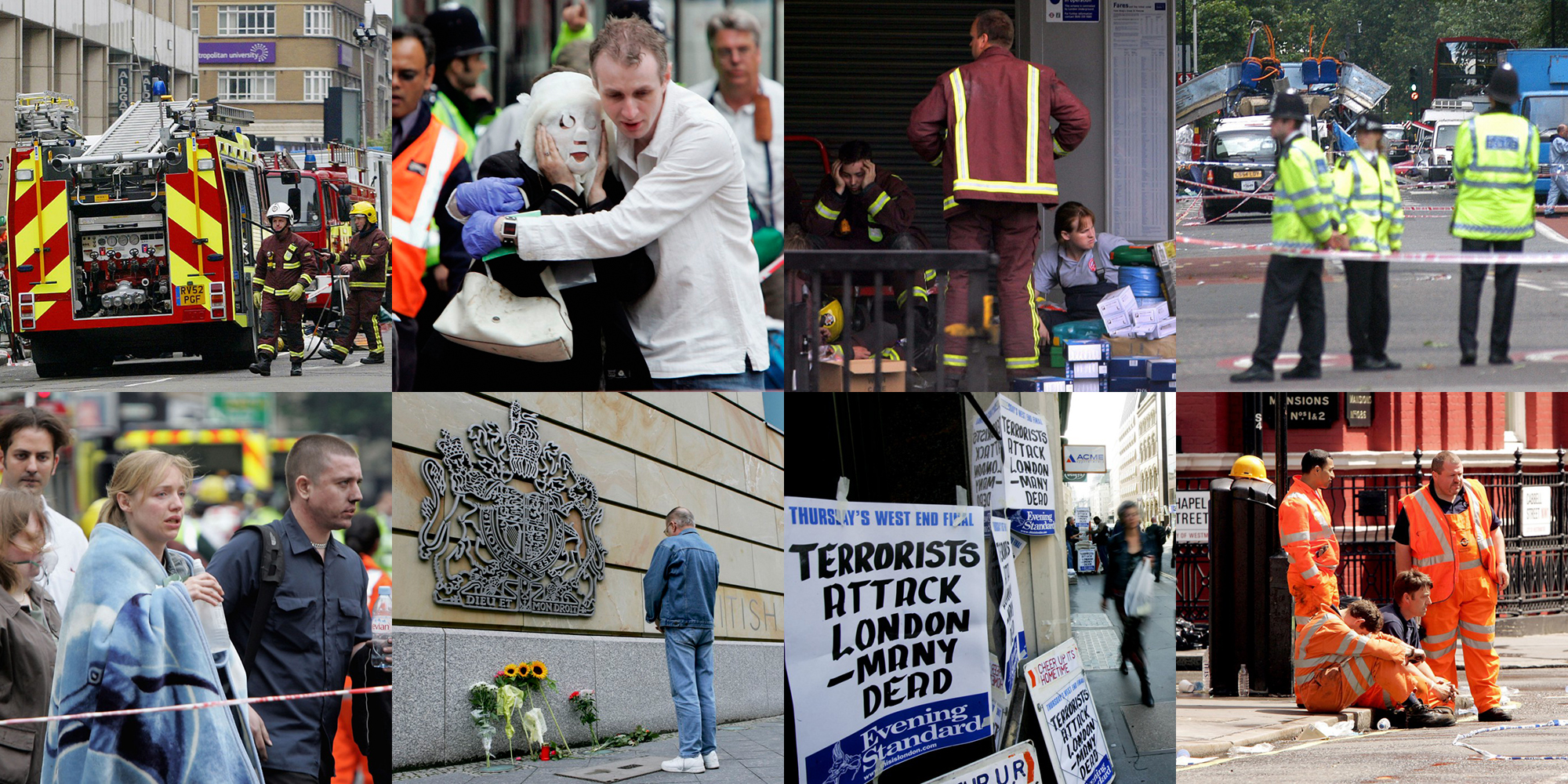
In the days after the blasts, there was still life-saving work to be done. When the Queen visited the Royal London the day after the attack, Miss Patel was in theatre performing an emergency procedure to save the arm of a patient who had already lost both her legs.
She says: “I missed out on the Queen but I was very, very glad I was in theatre because the lady I was treating had lost both her legs and had we not picked that up very quickly it would have been a tragedy because this lady went on to become a Paralympian.”
The surgeon attributes her continued closeness to her former patients to the hours she spent after work, sitting by their hospital beds, talking about their fears and feelings.
She recalls: “There was very little input from the pyschological perspective. I used to spend a lot of time talking to patients at the end of the days; I’d go to see the patients on the ward.”
She says the encouragement was an important part of their treatment, giving them hope that they could overcome their injuries. “You start off with very small things: getting into a wheelchair, doing the physiotherapy to get stabilised on crutches.”
When she gets the annual dinner invitation or receives an email from one of the 7/7 survivors, she feels inspired: “Every time you meet them you learn something different about human resilience. They have gone ahead - despite all of this - with their lives. They really are an inspiration to me and it’s wonderful meeting them every year. They are what the human spirit is all about.”
On the morning of July 7 2005, the head of Scotland Yard’s anti-terrorism unit was at home dealing with a domestic disaster as water poured from a broken pipe through a ceiling.
When his son, who was travelling through King’s Cross station, called to say that people were being evacuated from the Tube and smoke was billowing, Peter Clarke knew something was wrong.
The previous weekend he and his team had rehearsed the idea of a terrorist attack in the capital. The worst possible scenario, they concluded, would be multiple bomb attacks on the Underground.
“Sadly, that’s what happened on that morning,” Mr Clarke recalls. He was rushed into Scotland Yard in a police car to take command but it took hours and days for the picture to become clear. When the government’s Cobra emergency committee met around lunchtime, no-one present knew exactly how many bombs had gone off.
The cost of Operation Theseus, the Metropolitan Police investigation into the bombings
It marked the start of Operation Theseus, a £100 million investigation into the bombings.
Mr Clarke says: “The investigation into what happened that day was primarily the investigation into the murder of 52 innocent Londoners. That became, inevitably, an enormous investigation. We had to bottom out exactly who was behind it, why they had done it, how they had done it and we had to learn the lessons for the future to do everything we possibly could to stop it happening again.”
A few days after the blasts he went down to see for himself the wreckage in the tunnel beneath Russell Square.
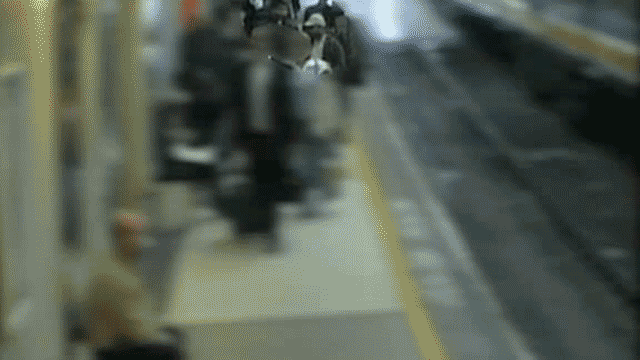
Mr Clarke says: “I won’t describe in detail what I saw there; it’s just simply too ghastly. But I think it can fairly be described as carnage.”
The former Scotland Yard chief thinks the bombers must have had help in planning their attacks and is frustrated that no-one has ever been convicted of assisting them.
He said: “We weren’t able to successfully bring any charges against any other people in direct connection with the attack on July 7. The question is asked, do I think other people must have known or suspected, either before or afterwards, what was going on, what these people were involved with?
“I don’t know the answer definitely. I just find it difficult to believe that, over a matter of months as they planned this attack, as they gathered together the material they needed to make the explosives, as they rented properties, as they hired cars, someone couldn’t or shouldn’t at least have had the suspicion that something was afoot.”
Mr Clarke remains involved in the security world. He is on the board of the Charity Commission, particularly alert to the threat of terrorist groups exploiting charitable fundraising, and conducted the government inquiry into extremism in Birmingham schools.
He says: “In a very short space of time without trained investigators and no real powers I found very clear evidence of extremism within schools because very brave people were prepared to come forward and give evidence.”
Looking ahead, Mr Clarke sees a worrying future and a long struggle to counter the jihadist ideology.
He adds: “I’m afraid I’m rather pessimistic. The ideology which has driven terrorism for a number of years, there is no sign this ideology is losing its appeal to some people. In fact, the reverse. We are now seeing thousands of people being drawn into conflict in Syria and across the Middle East. Many of those are returning to this country and undoubtedly pose a serious threat to the safety of the British public. Until the ideology itself loses its attraction I’m afraid that we will need to be cautious.”
On July 7 he will spend time with former colleagues, remembering the extraordinary month of July 2005 which also saw a huge manhunt for the four failed 21/7 bombers.
Mr Clarke adds: “I think everybody, whether they were involved at the time or not, but I suppose particularly those of us who were closely involved, will certainly reflect about what happened on July 7 ten years ago and in particular the suffering that was caused to so many people by those mindless acts of violence.”
Every now and then something will trigger Louise Rochester’s memories of 7/7 and the horrors she saw deep below the streets.
She remembers the dark of the Piccadilly Line tunnel between King’s Cross and Russell Square. She remembers the heat, the eerie sound of people groaning in pain and crying for help and the fear that the roof might cave in.
And nagging away at her is the wish that she could have done more.
“I worry that I didn’t do enough. Is there anything more I could have done? And over the ten years that is the thing that has stayed with me.”
Ms Rochester was a police constable based in Hampstead and was one of hundreds of officers rushed to the scenes of the explosions. She and her colleagues were taken to Russell Square and walked down the long spiral staircase to the platform.
She recalls: “There was a sergeant waiting for us and he said ‘There’s multiple casualties and a train in the tunnel’. He wasn’t the type to get flustered and he wasn’t flustered - but you knew there was something really wrong. He said ‘You don’t have to go into the tunnels but there’s injured people on the train’. Everyone went.”
Before they reached the train, she and a colleague came across a young man on the track.
Ms Rochester, 34, who is now a detective sergeant investigating rape cases, says: “He was fully suited as if he was going to work. But one of his legs was just mush and the other was curled up underneath him and he was shouting for help.
“He had a priority one sticker. I don’t know where it came from, but there was a stretcher there so a colleague and I helped him on to a stretcher and carried him out. He’d used his own belt as a tourniquet on his leg - or maybe it was his tie. We carried him out, kept talking, trying to keep him conscious. It seemed to take ages. [It was] dark, smoky - and it was a long way back down the tunnel.”
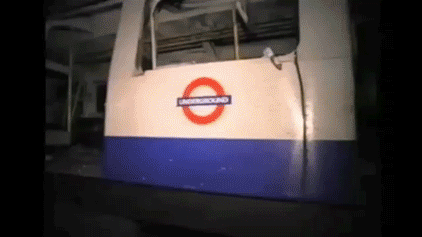
When she returned to the train she was turned away and told there was no one else inside who could be helped. The carriages were now a crime scene: the preserve of forensic examiners.
On the station concourse, doctors and nurses were treating the wounded. Ms Rochester says: “I just wanted to help, but everyone was being looked after - it felt really awful not being able to do something to help.”
She later visited the young man she had rescued in hospital and saw him again at a memorial service for the victims.
Ms Rochester adds: “It made me realise that anything can happen. They were just normal people going to work. It could have happened to any one of us on a Tube train.
“People lost their loved ones, people lost limbs. In that one second, hundreds and hundreds of lives were changed forever. It made me realise that life’s quite fragile, isn’t it? I know it’s a cliché, but it made it very real for me.”
Stephen McDermott will be attending one of the memorial services on July 7 to pay tribute to those who died and support those who survived.
As a firefighter, Mr McDermott, 38, was one of the first emergency services personnel to arrive at Tavistock Square after a suicide bomber blew himself up on the top deck of a London bus.
At the time he was recently married and his wife was pregnant. His first child was born five months after the attacks and he is now a father of three.
“Life is precious, enjoy it while you can - that’s what hit home for me about 7/7,” he says. “Spending time with my children, trying to bring them up to be decent people who do the right thing, that’s my priority.
“I’ll be going to St Paul’s [Cathedral] on the anniversary because it’s important to let the families know that their loved ones have not been forgotten - ten years on I suppose what I take from it is that life is very precious and it can be taken away from you just like that, through no fault of your own.”
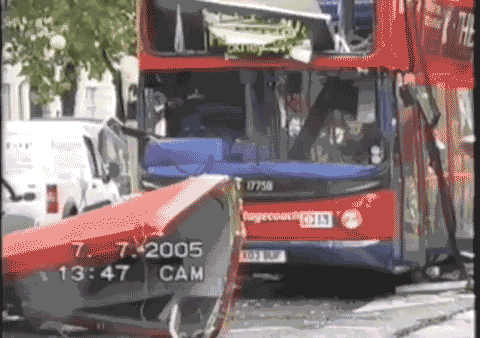
On the day itself Mr McDermott was driving his crew’s fire engine back to Holloway station after helping an elderly lady whose bathroom had flooded. They were diverted to Tavistock Square by a radio call and had to inch their way through streets crowded with people pouring out of the Tube network.
“We came to a stop when we saw the bus with the roof missing, all peeled off. We spoke to the police and they said then they suspected there was a suicide bomber on the bus. At that moment we just clicked into gear. We’d been told it was going to happen and it did happen, so we had to deal with it.”
Firefighters had been undergoing training for such an eventuality since the 9/11 attacks in the United States in 2001. Now they were confronting the reality.
Mr McDermott recalls: “There were bits [of people] everywhere, bodies of the dead on the bus. We had to leave them and concentrate on those who were still alive.”
He helped rescue one man from the wreckage and took him into the courtyard of the British Medical Association where doctors who had been in meetings were treating victims. The young man did not survive.
The firefighter adds: “It still comes to mind, occasionally. I’m driving past Tavistock Square and I see the memorial and it does bring it back for a while, but I try not to dwell on it too long to be honest.”
If it had been any other day Thelma Stober would not have been on the Circle Line just before 9am, standing just a few feet away from the bomber Shehzad Tanweer.
She usually went to work much earlier, but the night before London had won the right to hold the 2012 Olympics. It was a pleasant surprise for Thelma, the lawyer responsible for securing the land acquisitions essential for a successful bid.
“We had not expected to win and I had decided to take the day off and take my son, who was seven at the time, to and from nursery. But of course we won, so I decided to go to work and get started, but I was late as I still wanted to drop him off.”
The euphoria from the Olympics win was shortlived. “I remember, someone on the communications team had said [the night of July 6] ‘I’ve never seen you so excited, you were jumping so high’.”
Ms Stober pauses, and laughs wryly: “That was the last time I was able to jump.”
She was blown out of the carriage by Tanweer’s bomb as the train headed towards Aldgate, and woke up on the tracks with a piece of train door embedded in her leg. “I remember I had typed a text to my PA, as the train left Liverpool Street I pressed send. There was a flash, there was light, I felt as if I was circling in the air. I could hear people screaming. It was distant, like a dream.
“Then I woke up and I was on the train tracks. It was pandemonium. They used to have these signs on the Tube saying, ‘Don’t use mobile phones’. I thought at the time that it was my phone that had caused a crash.”
Ms Stober, now 49, lost her lower leg and had to learn to walk again.
“I didn’t appreciate the implications of losing a limb. I’d always thought you’d just be given an artificial limb. But you have to learn how to walk, to climb steps - it’s a journey.”
Ms Stober, from Sierra Leone, has never felt anger against the bombers because it would be a “waste of time and energy”, she says. “Of course I get down at times because of the difficulties and challenges. But they would succeed if I was angry.
“Whatever happens, I see as challenges - I’m very fortunate to be alive. I call it the extra time that I’ve to do what I can to make a difference. I want to divert my energy into positive things.”
She has used her legal skills to advocate for July 7 victims, including successfully arguing that they should be allowed to give evidence in person at the inquests. She speaks at schools in east London, demonstrating “hope and courage irrespective of what challenges you go through”.
“These things have happened to me. But it hasn’t stopped me.”
They say the darkest of hours comes just before the dawn and for Sajda Mughal July 7, 2005, provides the starkest illustration of the famous proverb.
As mayhem ensued in the darkened carriage of his Piccadilly Line train from Kings Cross, the 22-year-old recruitment professional “went into shock”.
“People were banging, screaming, kicking and punching the carriage; I just sat there in total silence. I was thinking about my family and all the things I hadn't yet done in life because I genuinely thought my time had come.”
I remember thinking this is it and asking God to take care of my family and look out for them. It was 45 minutes later when we heard voices saying: "It's police, we're coming to get you.”
It wasn't until much later in the day when, covered in soot and making the long journey home by foot, she discovered exactly what had taken place on the carriage that was her usual choice.
“I happened to be in the tenth carriage on that day because I was a little late but I normally always took the first carriage in which Lindsay blew himself up.”
No one who was on the first carriage survived and Ms Mughal believes fate ordained her a second chance: one that she has turned into a dawn of hope.
“I wasn't particularly devout when it came to my religion but that day has made me more aware and I know that what those boys were following wasn't religion.”
The task at hand has led Ms Mughal to leave a promising career in recruitment and dedicate herself to preventing any further horror on the streets of the City in which she was born and grew up.
She has done this by heading up the Jans Trust charity and working with Muslim mothers to equip them to deal with the problem of extremism.
Having had two children of her own, Ms Mughal is adamant that mothers are the key to dealing with the problems of terrorism.
“They are also victims of this and they can’t be left to receive blame for actions and people which they don’t always have control over.”
Although she acknowledges that the task has become harder with the rise in Islamophobia and chaos in the Middle East, her work has led to some mothers having stopped their children going out to Syria.
“Our work doesn't create headlines but it’s what happens beyond the major events and flashpoints that matters.“
Mavis Hyman was dealt the “most devastating blow imaginable” when she learnt that her daughter Miriam, an artist and freelance picture editor, had been murdered in the Tavistock Square bus bomb at the age of just 32.
But Mavis, now 84, draws strength from the positive things that they have been able to do since she died.
Reflecting on the 10-year anniversary of Miriam’s death, Mavis Hyman said: “We will love her as much as we ever did, that will never change. We think about her every day.
“But because we are doing so much that is positive, our heads are filled with very encouraging and hopeful thoughts.”
The family created the Miriam Hyman Memorial Trust, which has established an eyecare centre for children in Orissa, India, where Mrs Hyman was born. It also works to take a stand against terrorism and has recently launched an online programme to tackle extremism in schools. Using Miriam’s story to promote diversity, tolerance and cohesion among 11 to 14-year-olds, it was developed in conjunction with Copthall school in Barnet, north London, which Miriam attended, and it is being piloted in schools in and around the capital.
“By and large these students have not heard of July 7, or if they have they knew very little,” Mrs Hyman said.
“It’s the stuff of very modern history. It has to be addressed. We are really preparing young people for the tests that face us in life. It is about resilience, it is about empathy, it is about experiencing culture. Hopefully through understanding the traditions of a different society, that will dispel fear and encourage understanding.
“We are also suggesting there is an alternative way of resolving conflict other than terrorism.”
The family have refused to accept a victim’s mindset since Miriam’s murder.
Mrs Hyman said: “People said to us, ‘you will experience anger, bitterness’ – but we did not. What we did experience was the feeling that something very negative had happened – that there was a disequilibrium in society. We felt impelled really to try and redress this imbalance.
“The reason we were so motivated is because we did not want anyone to experience the unnecessary suffering that we were going through.
“Whilst we have had the most devastating blow that can be inflicted, we have had on the other so much compassion, generosity and so many positive things that it is encouraging. We have great hope for the future.”
An exhibition featuring some of Miriam’s paintings, found by her family after her death, recently began at City Hall and will run until July 9.
“We hope that people will enjoy it because this is what Miriam was about – about giving joy to people and she can still do it now through her paintings, it is lovely.”
The day dawned with a gust of optimism, jubilation and national euphoria that was shattered in a matter of minutes.
Britain had just won the competition to host the 2012 Olympic Games, and I had written an article predicting that the London Olympics would be a “trial of strength and nerve, but also a cathartic moment of cultural and psychological renewal”.
On a normal day, I would have taken the Metropolitan Line tube to Aldgate station, but that morning I was invited on to Radio 4’s Today programme to talk about the Olympics. As I emerged from the studio, the city seemed eerily quiet, save for a rising wail of sirens. The first of the four terrorist bombs had detonated, on a Metropolitan train at Aldgate.
I spent much of the rest of the day wandering around London, talking to people, trying to assess the psychological impact of the attack on the capital.
Britain is perfectly capable of mass hysteria (think of the death of Diana, Princess of Wales), but the more usual collective reaction to trauma is to keep calm and carry on, emphatic understatement, and a deliberate communal determination not to give in to extreme emotion. There was no panic, shouting or public weeping.
The rumours, far from sowing more fear, tended to downplay what was happening. “It’s a power surge on the underground,” one man told me with absolute certainty. “That’s all it is.”
The banks closed, stocks plunged, the transport system stopped, but the reaction of the vast majority of people was simply to walk home, talking to one another, because the mobile phone system had been switched off. One of the most moving sights of the day was the great tide of humanity trudging stoically through the streets of the stunned city.
The term “Blitz Spirit” has become hackneyed through overuse, shorthand for under-fire heroics. The real spirit of the Blitz was an old woman searching for her teapot in the rubble. “We must KBO,” said Winston Churchill at the moment of greatest crisis, short for “keep buggering on”. That is what London did on 7/7, not with resignation, or self-conscious stiff-upper-lippery, but because that was the only thing to do.
In an article for the morning after, I wrote: “Last night London counted the casualties, swept up the glass and blood and, as if from a smoke-scorched tunnel deep in hell, crawled slowly back towards the light.”
July 7 began with a loud burst of Olympic national pride but it ended, after a cathartic trial of strength and nerve, on a quiet note of more profound patriotism.
Digital production: Sam Joiner, Matt Taylor
Reporting: Sean O'Neill, Fiona Hamilton, Faisal Hanif
Photography: Jack Hill, Tom Pilston, Ben Gurr, Matt Taylor